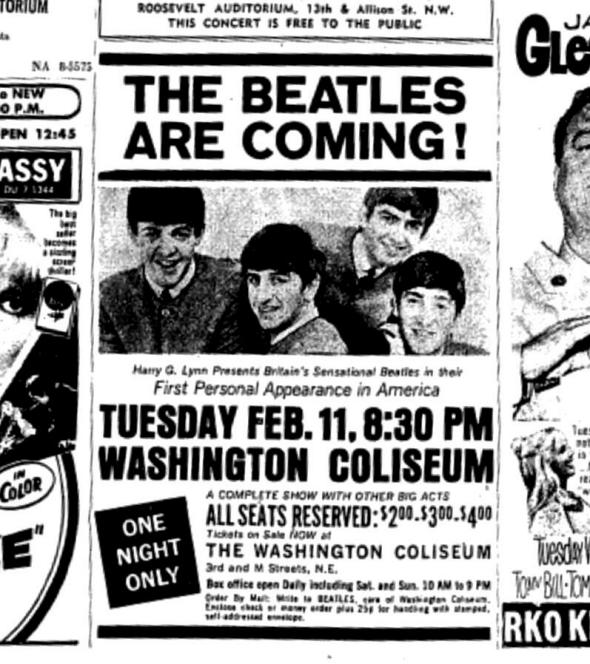I enjoyed George Packer's New Yorker article on Amazon, and recommend it. ArtsJournal's link to the story has the heading "Is Amazon good for books? Not just publishers, but books themselves?" The New Yorker's own sub-heading is "Amazon is good for customers. But is it good for books?" I find the question a bit puzzling. I can understand asking whether the rise of a particular corporation is good for buyers, publishers, authors, or other types of person. But what does it mean to ask, as a separate question, whether Amazon is "good for … [Read more...]
Pricing to fill the house
ArtsJournal links to this piece from Britain's Guardian on pricing at the Met (see here for an earlier post of mine on the subject). Tom Service writes: They filled just 79% of the seats in that huge, red-velvet covered house, and made only 69% of their projected box-office revenue. For all the millions who watched the cinema broadcasts, those are astonishingly low figures for the world's most expensive opera house. The Met's general manager, Peter Gelb, admits an experimentation with a more flexible pricing structure, borrowed from Broadway, … [Read more...]
Scaling the house, fifty years ago
Were there people who thought '$4 is an awful lot for a pops concert, I think I'll just go for a $2 seat'? Via Matt Yglesias. … [Read more...]
Rich man, poor man
My last post criticizing a recent study on the distribution of the benefits of NEA funding generated a lot of commentary. I thank everyone for contributing, and will try to respond to at least some of the points raised. First, I was not staking any claim on whether public funding of the arts is a good thing. As it turns out, I do think it is a good thing - I'll post my thoughts on this later - but all I was doing in the initial post was saying that the recent study out of SMU on arts funding was flawed. That the study was trying to say … [Read more...]
NEA funding and the ecological fallacy
Are rich voters more likely to favor candidates from the Republican Party? The richest states by per capita income are Maryland, Alaska, New Jersey, Connecticut, and Massachusetts. Of these five, four are pretty reliably "blue" - i.e. leaning Democrat - with Alaska being the outlier. The five poorest states by per capita income are Alabama, Kentucky, Arkansas, West Virginia, and Mississippi, all of which are "red" - typically Republican. So the rich actually tend to vote Democrat, right? Wrong. That inference is an example of what statisticians … [Read more...]
Pricing at the Met
Today the Wall Street Journal and the New York Times report on statements from the Metropolitan Opera regarding recent changes in prices and box office revenues. The WSJ reports, under the headline "Met Opera Suffers Budget Shortfall From Pricing Backlash": The Metropolitan Opera's $311 million budget fell short by $2.8 million last year, after a ticket price increase backfired and caused attendance to drop, according to a newly released financial-disclosure document. Last February, Met officials announced a … [Read more...]
The sunk cost fallacy
It is great to be back at Artsjournal, after a fall semester of teaching a couple of courses, taking an introductory course in Mandarin, finishing up some academic papers and, most relevant to this space, completing a manuscript of a book on strategic pricing in the arts. I'll give updates as that moves along. For now, I plan on getting back to regular posting, and I welcome suggestions for any questions on pricing in the arts that might occur to you. To get started, I came across this article in the journal Psychological Science by Andrew … [Read more...]
More whatever
Thanks for the comments on my recent post, Whatever, on pay-what-you-will pricing. Joanna writes: There was the instance in 2007 when the band Radiohead sold their album, In Rainbows, on a pay-what-you-can basis. My understanding is that even this extremely popular band that doesn’t have to do much to get people to buy their records figured out this strategy didn’t work in generating revenue. Agreed. And Radiohead's strategy has to be seen in the context of using sales or distribution of recordings as a means of generating demand for … [Read more...]
Whatever
The Washington Post reports that Forum Theater will not charge an advance price on tickets, but instead will have audience members pay after the show, whatever amount they think is right: Michael Dove, Forum’s artistic director, says that he has long been concerned about what it means to be a nonprofit theater — an enterprise supported to some degree by taxpayers — that is beyond the financial reach of many consumers. “The one thing I wanted to take a crack at is how do we make theater accessible to everyone, and get past the idea that it’s … [Read more...]
The unknowable future
At Marginal Revolution (which often has posts on the economics of the arts - you should be reading it!), Tyler Cowen points us to Paleofuture, which gives a 1940s version of the 'kitchen of the future.' We would no longer use dishes ('antiques') since our food would be processed and dehydrated. The 1960s cartoon The Jetsons imagined some similar changes in interior design, although the cooking and cleaning would be done by a robot maid. What has interested me about visions of the future is that they share a common bias: the aspect of the … [Read more...]









